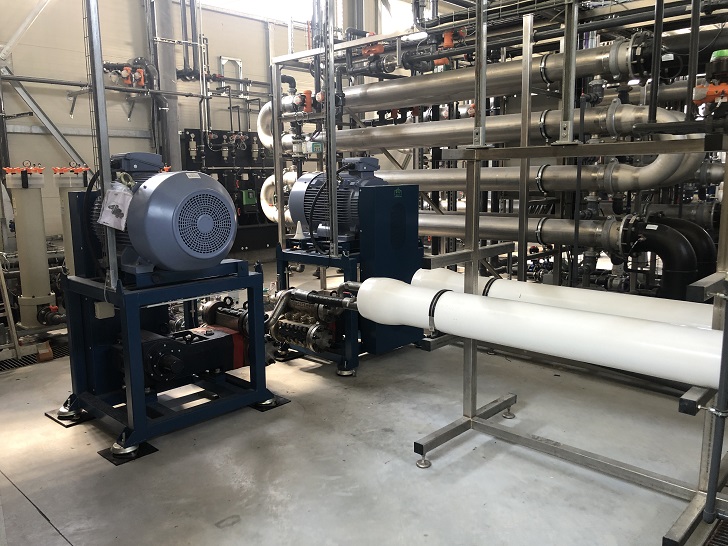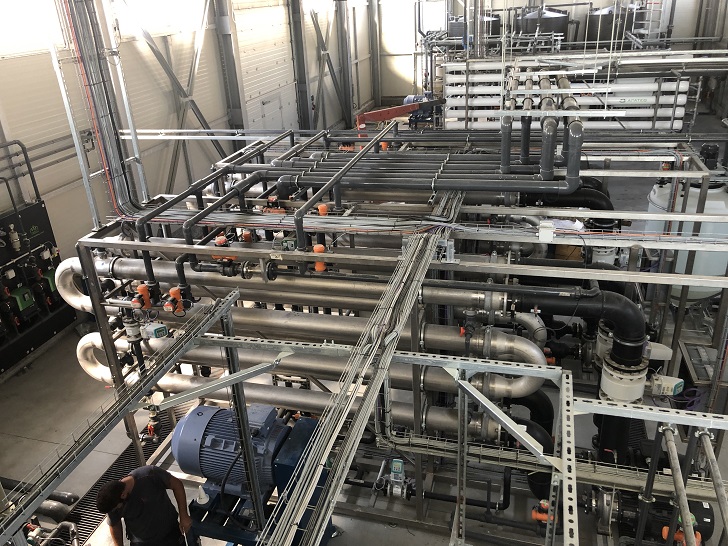


The success of Wanner Engineering is thanks largely to a motivated and loyal team, some with 40 years-service. Paul Davis, managing director of Wanner’s Europe, India, Middle East & Russia subsidiary, talks to the boss, Bill Wanner.
Bill Wanner founded Wanner Engineering in 1972 and, with the support of a strong and highly skilled team, has grown it into a $50 million global enterprise, with 9% annual growth on average for 25 years. Bill explains the influences that shaped him and the company, and reflects on the milestones that were achieved by Wanner Engineering in its fifth decade.
“My father was a huge influence on me. He was a scientist and world-class inventor, graduating in maths, chemistry and physics. One of his achievements was to help put the jet engine into production and he worked with Howard Hughes on an exhaust manifold. Other leading scientists and engineers he worked with included Einstein and Niels Bohr, who I met. Mum was a home maker, keeping many plates spinning. It was one of those households where just sitting across the dinner table, you’d pick up a lot.
Inspirational “I remember Dad recounting his day at dinner and how he had met all these inspirational people and I guess a lot of that rubbed off onto me. He contributed to the Manhattan Project’s delivery of the atomic bomb during the Second World War, through Clinton Engineer one of the dummy companies set up for the project, and made many other inventions which helped the allies. This is the environment I grew up in, which was very different to his. He grew up in rural Wisconsin.
“After the war, Dad started his own company, Wanner Engineering, where he invented the rotary snow plough and some of the first pumps for agriculture. His idea was to develop a pump, which instead of using heavy balls, used the skin of the balls that could operate 540 rpm for tractors.
“Dad then sold off all his businesses when I was in the state high school. After a postgraduate degree from Wisconsin University law school, I was posted to Vietnam as a lieutenant in the US army on the legal/property side. I spent a year there and went as far north as the demilitarised zone.
Starting out “On returning to the US, I went to work for the president of the Advanced Machine Company, but I always wanted to start my own company, to do something on my own. At the same time, Dad was always working in his research lab on things that interested him.
“It always bothered him that conventional high-pressure positive displacement pumps had nonstop problems with lubrication, packings and leaking problems associated with that type of pump. He recognized that the inherent design was bad for the environment. Further, he also recognized the need to develop a pump that in addition to handling abrasive liquids, could also run dry. I bought used machinery, hired some people and they taught me how to machine parts. I worked 18 hours a day, machining parts in the evening and selling them in the morning.
“From the start I made sure that the conditions in our factory were no different from our office, and we have followed that ever since. It’s a wonderful working environment. We have state of the art machines and staff turnover is enviably low; a new person at Wanner Engineering is someone who has been here for 14 years; and some employees have served for 30-40 years. We have a policy of promoting from within and we’re always keen to pull people out of the factory or sales. That includes technical experts such as our 17 mechanical engineers in R&D who are qualified all the way up to masters and advanced masters.
Purifying seawater “I came back from a trip one time and hit upon the idea that what the world needs is a pump to purify sea water, and I of course turned to Dad, who solved the problem. With our patented technology we basically won all the contracts to supply the life rafts with hand pumps for most of the free world military. That put us on the cover of People magazine. We took the company public and then moved into the consumer market. In the 1990s we sold the company to Proctor and Gamble and it is now known as Pur.
“We have a strong emphasis on new product development and put 10% of our revenue back into R&D. With our engineering background, we retain many patents on our products, the first in 1972 on the Hydra-Cell and others followed, including the Kel-Cell Diaphragm Position Control Technology in 2003. IP is really important.
“Very shortly after I started the company, my thoughts turned to the inevitable economic cycles the world turns through. So, with very little money, I came to London with 100 bucks, I set up my first distributor. Even though we were a tiny company, we needed to spread the risk.
“We set up an office with Shurflo that allowed us to combine staff to save money. We had one phone with two lines on one, Wanner International and the other Shurflo International. After ten years both companies bought out their respective interest and struck out on their own. We continued to grow, developing a worldwide distribution network and adding offices in Hong Kong, Shanghai and in Sao Paulo. We purchased Texas Pump and added JJ Tech in Shreveport, LA.
Pizza bonus “I created a family culture which recognised the importance of every single person. I looked at what other people did. For example, our distributor in Japan would, every quarter, give a bonus as opposed to waiting until the end of the year. Out of that came our pizza day, where every quarter we shut down the factory and enjoy a classic margherita or pepperoni whilst talking about anything that is going on; looking at donations, health insurance and other things that are important to our staff. If we’ve had a good quarter, we give everyone an extra week’s pay-check. So they see the rewards of the work they’ve done. We also have one of the best health insurance plans.
“My vision for the future is to keep growing the company, to keep it privately held. The board is developing a succession plan. I have no desire to retire and I hope that in five years we’ll continue our track record of growth.”
About the author
This article was supplied by Wanner International.






